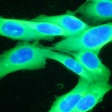
Grail’s multicancer detection test could support the evaluation of patients who have symptoms that may be caused by cancer, according to a paper published in JCO Precision Oncology.
Developers of blood-based tests for detecting cancer have primarily focused on the potential for their diagnostics to find tumors before patients develop symptoms. The early detection of cancer is associated with better health outcomes, but many cases are advanced by the time of diagnosis because of the lack of viable screening options. However, Grail also sees a potential role for its test in more advanced cases.
“An optimized test has the potential to reduce the time to diagnosis and minimize non-targeted diagnostic testing by both prioritizing individuals with cfDNA detected for cancer diagnostic pathways and directing to the appropriate pathway using the [cancer signal origin]. This efficiency in diagnostic workup could lead to better outcomes and decreased costs,” the researchers wrote in the paper.
To assess the use case, Grail enrolled a subgroup of people with symptoms suspicious for cancer in a trial of more than 15,000 people designed to show if the test could detect cancer early in blood. The company, a subsidiary of Illumina, recently shared the results of the subgroup analysis in a journal paper.
The subgroup analysis included 2,036 subjects with cancer and 1,472 without cancer. Grail used the prospective, case-control study to assess the ability of its blood-based test to detect and predict the origin of cancer in individuals with symptoms suspicious for tumors.
In patients with clinically presenting cancers, the test achieved a “moderate” sensitivity of 64.3%, meaning it delivered false-negative results in around one-third of cases. Further analysis showed that the cases missed by the test had better overall survival than the cases it detected, suggesting that the false negatives may have occurred in patients with less-aggressive tumors.
Part of the argument for using multicancer detection tests in patients with oncology symptoms rests on the potential for the products to simplify and accelerate the process of diagnosing a patient with cancer. As such, a test will be most valuable if it delivers low rates of false results and identifies the location of the tumor to enable targeted follow-up. Grail’s test predicted the cancer origin in 90.3% of true positives.
False positives cause stress for patients and impose costs related to further testing on healthcare systems. As such, high specificity is needed for tests to be used to screen patients. The test achieved a specificity of 99.5% in noncancer patients.



















